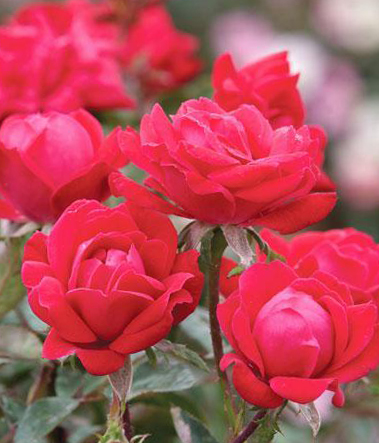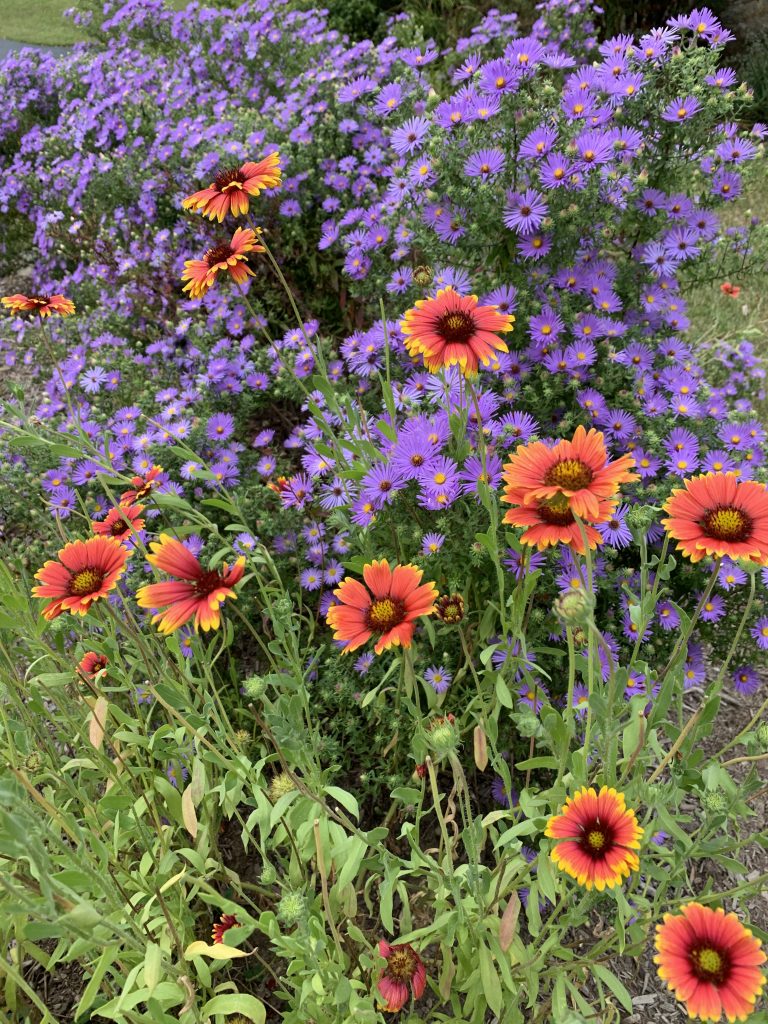Ask the Gardener: Protecting roses, bulb planting and zebra grass
Posted on: December 7, 2019 | Written By: Doug Oster |
Everybody Gardens editor Doug Oster gets asked a lot of questions. A lot. And he doesn’t mind offering gardening advice. But rather than just limiting those answers to the person who asked, we thought it might be a good idea to share that wealth of knowledge with everybody.
There are three ways to send in your questions:
- Email askdoug@535mediallc.com
- Submit your question on our “Your Garden” section of our site
- Send us a message on Facebook.
(The questions may be lightly edited for grammar/clarity/etc.)

Question 1: Protecting roses
Doug: Any tips you would like to share on how to care for Knock Out roses during the winter? I have a beautiful rose garden and want to preserve them for the new year. Should I put pine needles or straw around the base of the plants or any other protection?
Doug: Knock Out roses are one of the toughest types of roses. They would benefit from some mulch at the bottom of the plant. You just don’t want it to touch the bottom of the plant. Some gardeners will use evergreen boughs at the base too. In the past during a really cold winter, we’ve seen the Knock Outs die back and return from the roots, but that’s a rarity.
Question 2: Bulb planting
Mary: I just got my iris bulbs from Vandenberg Bulbs. Can I plant them now in this weather? How deep and do I need bone meal or anything?
Doug: They need to be planted now. This weekend would work well as the temperatures are mild. If you can, add some compost to the planting area. Iris rhizomes are planted with the tops exposed. Don’t bury the whole thing. Don’t use bone meal; sometimes that attracts four-legged pests.
Question 3: Zebra grass
Sunny: Should I plant a zebra grass plant this month or wait until spring? If not, what should I do with the zebra plant? It’s in a a pot.
Doug: There’s still time to get it in the ground. That’s a tough plant, so go ahead and plant the grass.

Question 4: Missing pollinators
Judith: As a former Pittsburgher (who grew up a long walk from Phipps Conservatory a long time ago in a immigrant neighborhood where lawns were superfluous and big vegetable gardens with flowers for accents were in nearly every yard!), I enjoy your blog for a number of reasons! Although I now live just outside of Boston, our growing zone is similar, so many of your posts remain relevant.
I love the Your Garden pics, but was really curious to see that this month’s asters and blanket flowers were totally devoid of any bees. Any thoughts on cultivars that do not attract native pollinators? My blue asters and lower growing blanket flowers are covered throughout the fall season, particularly attractive to native bumblebees.
Doug: The asters and blanket flower are both great pollinator plants. I think it just was one of those things when the bees weren’t around for the photo. Asters are especially important as a source of food for pollinators in the fall. There are some hybrids of different plants that are not attractive to pollinators like a double coneflower, but the flowers in the photo look like they should bring in the good bugs.
Previous mailbags
Poinsettia problems, avocado tree, voles and more
Hibiscus, daffodil bulbs, geraniums and more
Rose bush, cauliflower, apple trees and more
Hostas, fig trees and grapevine pruning
Shrub selection, bulbs in containers, shallots and more
Eucalyptus plants, reblooming iris, mulberry and more
Ground cover, kudzu, celosia and more
Moving rosemary, tree wall, thinning veggies and more
Dodder, schefflera cuttings, basil and more
Saving lilies, plant ID, volunteer squash and more
More from Everybody Gardens
See also, 11 Best Christmas Plants: Unique And Traditional Varieties For The Holidays